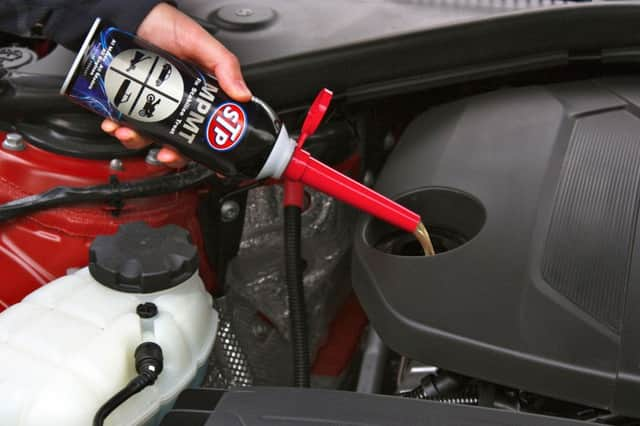Alisdair Suttie: Can fuel additives offset diesel’s downsides?


Many car owners have been left wondering if their car is performing as it should after it was revealed Volkswagen had been cheating emissions tests with some of its cars. One of the simplest ways to change your car’s performance, emissions and economy is to use a fuel additive, but how do they work and are they effective?
Much of the benefit potentially offered by fuel additives depends on the condition of your car’s engine. An engine in good working order and properly serviced simply doesn’t need a fuel additive. The best route here is to use a premium fuel, either for petrol or diesel engines, to give the motor a bit more pep, though this will increase your fuel bill.
Advertisement
Hide AdSo, fuel additives are best for high mileage worn engines? Well, not really as these engines will not be working very efficiently to begin with, and putting a small amount of liquid additive into the tank will do little to improve matters.
Most additives claim to help remove built-up carbon and dirt deposits from the engine’s moving parts. However, independent evidence suggests most additives do not work and can actually reduce engine performance by up to 2%. The only way this type of additive would work fully is if you used it from when the car was brand new and continued all through its life. Again, the cost of this would add up and it would be cheaper simply to use a premium fuel instead.
Other fuel additives claim to boost the amount of octane in the fuel and give more performance as a result of creating a bigger bang when the fuel goes into the engine’s cylinders. Again, independent tests show most additives of this type do nothing to affect your car’s performance and some worsen performance, economy and emissions as the engine has to do more work to burn and expel the extra chemicals being poured into it.
There are some additives that do what they claim, but you have to be very specific about which ones you choose. Selecting a cheap additive that makes all sorts of claims is likely to yield no benefit. Choose an additive that says it will clean the fuel injectors or fuel system and you have more chance of noticing a small improvement. These additives have very strong chemicals in them to remove dirt from the fuel system or injectors, though it must be remembered, they are not a substitute for maintaining your car properly and replacing worn parts.
If you still think a fuel additive might help, follow the instructions closely. Do not put too much into the fuel tank and only pour in the additive when you are filling the tank.
However, the best bet for improving your car’s engine performance is to give it a full service and stick to the recommended service schedule.